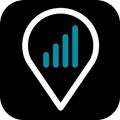With Instabridge eSIM, you can enjoy ultimate freedom and convenience in your mobile service. Say goodbye to physical SIM cards and hello to remote activation, multi-carrier flexibility, and global data coverage.

With Instabridge eSIM, you can enjoy ultimate freedom and convenience in your mobile service. Say goodbye to physical SIM cards and hello to remote activation, multi-carrier flexibility, and global data coverage.
Promo Code
Instabridge eSIM Data Plans for East Asia
Frequently Asked Questions
Does Instabridge offer unlimited data eSIM for East Asia?
Instabridge does not offer an unlimited data eSIM plan for East Asia. Travelers can choose from fixed data plans that provide large allowances, such as a 20 GB ASIA eSIM Mobile Data Plan for $24.00 USD with 7‑day validity or a 10 GB ASIA eSIM Mobile Data Plan for $16.00 USD with 30‑day validity. Selecting a fixed data plan can be more cost‑effective unless a traveler consumes data at an exceptionally high rate.
Does Instabridge offer East Asia eSIM with phone number and SMS?
Instabridge does not provide East Asia eSIM plans that include a phone number or SMS capability. All of its available options for East Asia are data‑only eSIMs. Travelers who need voice or messaging can use popular VoIP applications like WhatsApp, Telegram, and iMessage over the data connection instead.
What countries are covered by Instabridge's eSIM plans in East Asia?
Instabridge offers two eSIM plans that cover the same set of East Asian countries. The “ASIA eSIM Mobile Data Plan” includes China, Hong Kong, Japan, South Korea, Macau, and Taiwan, and the “GLOBAL eSIM Mobile Data Plan” also lists those six regions for East Asia, with no additional East Asian countries covered on either plan.
Summarized by Gen AI. Last updated:



